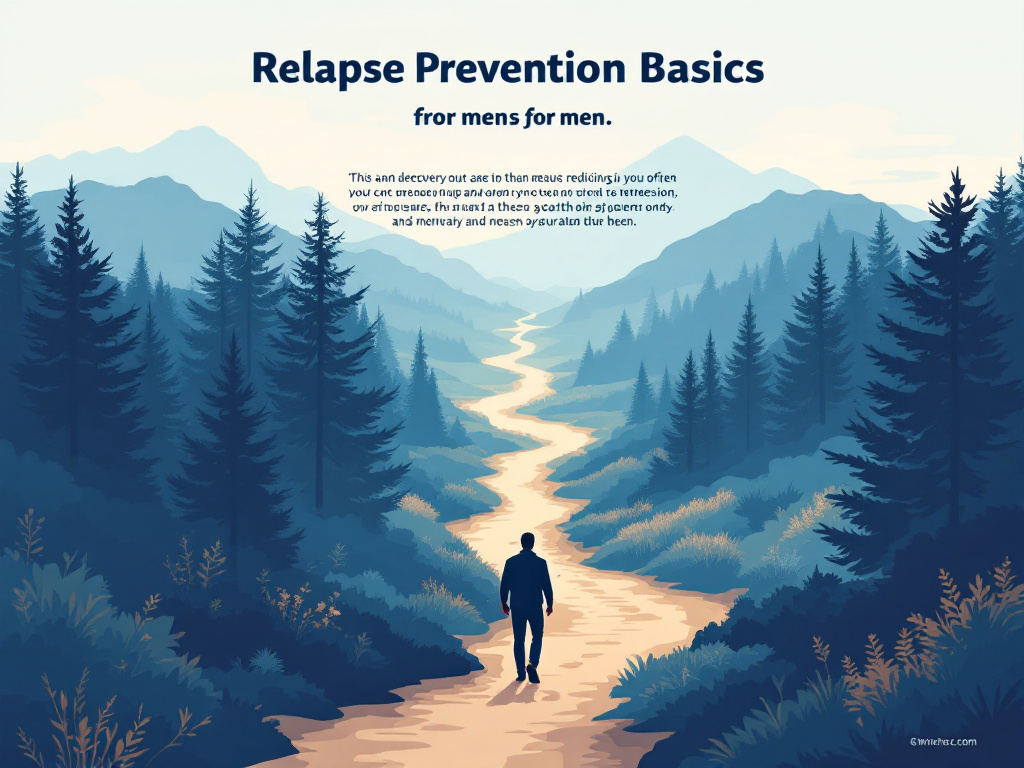The Importance of Professional Medical Detox
Navigating the detox process is a critical step toward achieving long-term sobriety. We understand that the risks associated with detoxing at home can significantly threaten this endeavor. Choosing professional medical detox is essential for both safety and success.
Detoxing at Home Risks
Detoxing at home poses serious risks that can lead to severe consequences, including relapse and overdose. Withdrawal symptoms from alcohol or drugs can be unpredictable and sudden, emphasizing the necessity for medical supervision and interventions during the detox process. Reports suggest that the relapse rate for substance use disorder ranges from 40% to 60%, highlighting the need for support in a professional setting (Gateway Foundation).
In 2020, the SAMHSA National Helpline documented 833,598 calls, a 27% increase from the previous year (SAMHSA). This statistic indicates a growing recognition of the dangers associated with home detox attempts.
| Risk Factor | Home Detox | Professional Detox |
|---|---|---|
| Relapse Rate | High | Lower due to support |
| Overdose Risk | High | Managed by professionals |
| Access to Medical Intervention | None | Continuous 24/7 supervision |
Life-threatening Withdrawal Symptoms
The dangers of unsupervised withdrawal can be dire. Alcohol withdrawal, for instance, can lead to life-threatening symptoms such as delirium tremens, which occurs in 5% to 10% of individuals with alcohol dependence. For untreated cases, the death rate of delirium tremens can reach 5% to 15% (Gateway Foundation).
With professional medical detox, we can monitor and manage these withdrawal symptoms effectively, providing the necessary interventions to ensure a safer experience. Medical teams offer resources and treatments that cannot be replicated at home, making this phase pivotal for establishing a foundation for recovery.
By understanding the risks of home detox and recognizing the critical nature of professional care, we can significantly improve the chances of achieving and sustaining sobriety. For more information on what to expect during medical detox, visit our article on what to expect during medical detox at a professional facility.
Safely Navigating Detox Process
When embarking on the detox journey, it is essential to navigate the process safely. Professional supervision and medical interventions play significant roles in ensuring a successful and secure withdrawal.
Supervision for Effective Withdrawal
Withdrawal symptoms can be unpredictable and severe, making medical supervision crucial during the detox process. Unsupervised withdrawal from substances like alcohol can lead to life-threatening conditions, such as delirium tremens, affecting 5%-10% of those dependent on alcohol (Gateway Foundation). Without appropriate medical interventions, the risk of complications—including a death rate of 5%-15% for untreated cases—is heightened.
Research indicates that detox is the first critical step in addiction recovery, providing a foundation for addressing physical dependence and managing withdrawal symptoms effectively. With medical supervision, individuals can receive around-the-clock support, which significantly contributes to the likelihood of transitioning into continued treatment. Studies have shown that 95% of individuals completing a medically supervised detox program successfully move on to ongoing treatment (Evoke Wellness Ohio).
| Benefit of Medical Supervision | Description |
|---|---|
| 24/7 Monitoring | Continuous medical oversight to prevent serious health risks. |
| Symptom Management | Effective treatment of withdrawal symptoms, aiding comfort. |
| Medication Assistance | Use of medications to alleviate pain and cravings. |
For more insights on what to expect during this phase, visit our article on what to expect during medical detox at a professional facility.
Role of Medical Interventions
Medical interventions during detoxification are essential for managing withdrawal symptoms effectively. Professionally supervised withdrawal programs provide ongoing assessments and treatments, which help alleviate discomfort and enhance safety (Gateway Foundation).
Beyond physical dependence, long-term recovery relies on addressing the underlying psychological and social issues associated with addiction. Individual counseling, group therapy, and other therapeutic measures are integrated into the detox process to manage psychological triggers and support mental well-being.
By incorporating psychosocial support during detoxification, patients are more likely to experience a safe detox and proceed seamlessly into comprehensive treatment. For additional insights into the detoxification process and its unique challenges, check our article on detoxing from opioids vs. alcohol: differences in care and support.
Having the right care and support during detox sets a solid foundation for our journey toward lifelong sobriety. It’s crucial to rely on the expertise offered by professional care centers like Recovery Bay Center, ensuring we take the necessary steps for long-term recovery.
Detox as the Foundation for Recovery
Detoxification is a critical first step in the journey to recovery. At Recovery Bay Center, we understand that detox is not just about getting substances out of the body; it’s about laying a strong foundation for long-term sobriety. Proper medical detox addresses physical dependence, ensures safety during withdrawal, and prepares individuals for comprehensive therapy.
Addressing Physical Dependence
Physical dependence on substances can be severe and requires professional attention. Supervised withdrawal from substances, particularly alcohol, can be life-threatening. The mortality rate for untreated alcohol withdrawal is as high as 5%-15%. At Recovery Bay Center, we provide inpatient detox where medically assisted treatment is overseen by expert professionals. Our goal is to minimize severe withdrawal symptoms, ensuring a safe and comfortable process for all individuals undergoing detoxification.
| Substance | Risk Level | Symptoms |
|---|---|---|
| Alcohol | High | Tremors, seizures, delirium tremens |
| Opioids | Moderate | Pain, cravings, anxiety |
| Stimulants | Moderate | Fatigue, depression, intense craving |
| Benzodiazepines | High | Severe anxiety, seizures, confusion |
Preparing for Comprehensive Therapy
Detox is only the beginning of the recovery process. According to the National Institute on Drug Abuse (NIDA), detox alone is rarely sufficient for long-term recovery. After detox, it’s essential to follow through with therapy and other treatment modalities that address the psychological aspects of addiction. Transitioning into a comprehensive treatment program after detox is crucial for sustained sobriety. This multifaceted approach addresses the physical, psychological, and social aspects of addiction, increasing the chances of lasting recovery.
Recovery from substance misuse goes far beyond detoxification. It includes improving health, relationships, employment, and housing while reducing criminal activity and risky behaviors (PMC). During detox at Recovery Bay Center, we introduce individual counseling and group therapy to help manage addictive impulses, mental well-being, and triggers for relapse (The Recovery Village). By addressing these factors early, we set the stage for a more successful recovery journey.
For individuals considering the process, we provide detailed insights into what to expect during medical detox at a professional facility and offer guidance on detoxing from opioids vs. alcohol: differences in care and support.
Ensuring Long-Term Sobriety
Transitioning from detox to a structured treatment program is a critical step in achieving long-term sobriety. After completing detox, individuals are often left with unresolved issues related to addiction, such as psychological triggers and the underlying causes of their substance use. Structured treatment programs, like those offered at Recovery Bay Center, provide comprehensive care that addresses these crucial aspects, enabling individuals to develop effective coping strategies for sustained recovery.
Engaging in post-detox care, such as residential or intensive inpatient care, is essential for fostering lasting change. Programs that incorporate therapy, peer support, and life skills training ensure that individuals are not only focusing on their abstinence but also on building a healthier lifestyle. For more insight on what to expect, refer to our article on what to expect during medical detox at a professional facility.
Importance of Peer Support Groups
The role of peer support groups cannot be overstated in the journey toward long-term sobriety. Participation in these groups has been shown to decrease substance use and enhance coping mechanisms essential for a successful recovery. The sense of community and understanding gained from these support networks provides a critical foundation for individuals striving to maintain their sobriety (Evoke Wellness Hilliard).
Joining groups like Alcoholics Anonymous (AA) or other recovery-oriented organizations fosters not only accountability but also an opportunity to share experiences, challenges, and victories with others who understand the journey. Engaging in such groups promotes emotional support, reducing feelings of isolation that can come with recovery.
Studies highlight that those who participate in peer support often report better outcomes. Following their journeys together can significantly enhance coping strategies and encourage a mindset geared towards long-term recovery. In addition to support groups, ongoing therapy is vital for maintaining sobriety, ensuring individuals stay engaged in their recovery process. For more about how ongoing care supports recovery, explore our article on combining detox with therapy for a seamless transition to rehab.
In summary, successfully navigating the path to long-term sobriety requires a well-structured treatment plan after detox and the incorporation of peer support networks. Both elements provide the necessary tools for understanding and managing life’s challenges, ultimately paving the way for lasting recovery.
Continuing Care for Sustained Recovery
Ensuring long-term sobriety is a comprehensive process that extends beyond initial detox. We recognize the crucial role of ongoing therapy and stress management strategies in this journey, as they significantly contribute to sustained recovery.
Benefits of Ongoing Therapy
Participating in ongoing therapy after detox is vital for maintaining sobriety. Research shows that aftercare interventions, including ongoing therapy and support group involvement, enhance recovery outcomes and reduce the likelihood of relapse (Evoke Wellness Hilliard). The advantages of ongoing therapy include:
| Benefit | Description |
|---|---|
| Reduced Risk of Relapse | Continued support helps manage triggers and cravings. |
| Enhanced Coping Skills | Therapy equips individuals with strategies to cope with stress and challenges. |
| Emotional Support | Having a supportive environment fosters connection and minimizes isolation. |
| Improved Outcomes | Studies indicate that therapy leads to higher rates of abstinence and lower risky behaviors (PubMed Central). |
Incorporating therapy into the recovery process creates a supportive environment that nurtures personal growth and development, further solidifying the foundation laid during detox.
Implementing Stress Management Strategies
Managing stress effectively is essential in maintaining sobriety. Stress can trigger cravings and increase the likelihood of relapse. It is crucial to implement robust stress management strategies as part of ongoing care. Effective methods include:
- Mindfulness Techniques: Practices such as meditation and deep breathing exercises help manage anxiety and promote relaxation.
- Physical Activity: Regular exercise has been shown to improve mood and reduce stress levels, benefiting overall mental health.
- Creative Outlets: Engaging in hobbies, like art or music, allows for emotional expression and serves as a constructive distraction.
Additionally, mobile health technologies, such as smartphone apps and text messaging support, can be integrated into daily routines to help manage stress and maintain connections to recovery resources. Studies indicate that such tools can enhance outcomes and support sustained recovery.
Using a combination of ongoing therapy and effective stress management strategies, we empower ourselves and others to navigate the challenges of recovery with resilience and hope. Continuing care interventions, including methods like Recovery Management Checkups, can offer ongoing monitoring and support, ensuring we remain engaged in our recovery journey.
Enhancing Detox Outcomes
Importance of Continuing Care Interventions
Continuing care interventions play a vital role in enhancing detox outcomes and supporting long-term sobriety. Research demonstrates that individuals who engage in ongoing support following detox have improved recovery trajectories compared to those who do not. For instance, studies show that telephone-based support can lead to significant reductions in risky drinking behaviors, and higher rates of abstinence in individuals with alcohol use disorder.
Another effective model is Recovery Management Checkups (RMC), which involves long-term monitoring and proactive re-engagement in treatment. RMC has been associated with quicker reentry into treatment during relapses, demonstrating cost-effectiveness and potentially saving resources in the long run (PubMed Central).
Additionally, advancements in mobile health technologies, such as smartphone applications and text messaging programs, offer innovative ways to deliver continuing care. These technologies have shown positive effects on substance use outcomes, contributing to higher rates of abstinence. Integrating these methods into our continuing care strategies can greatly enhance our clients’ chances of sustained recovery.
Role of Incentives in Improving Outcomes
Incentives can significantly boost engagement and compliance in continuing care programs. Studies indicate that providing incentives for attendance and maintaining abstinence can improve overall outcomes. Individuals who receive these incentives report reduced substance use and experience longer periods of abstinence, making it a valuable strategy in our recovery approach (PubMed Central).
Implementing a system of rewards for adhering to treatment plans and attending follow-up sessions can foster a more supportive environment for clients. These initiatives not only help clients stay engaged in their recovery process but also reinforce positive behaviors that contribute to lasting sobriety.
By focusing on continuing care interventions and using incentives effectively, we can help set a solid foundation for long-term sobriety. For more insights on what to expect during detox, explore our article on what to expect during medical detox at a professional facility.





